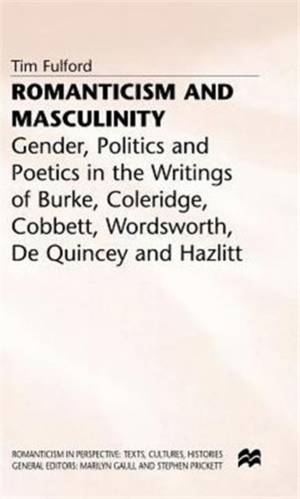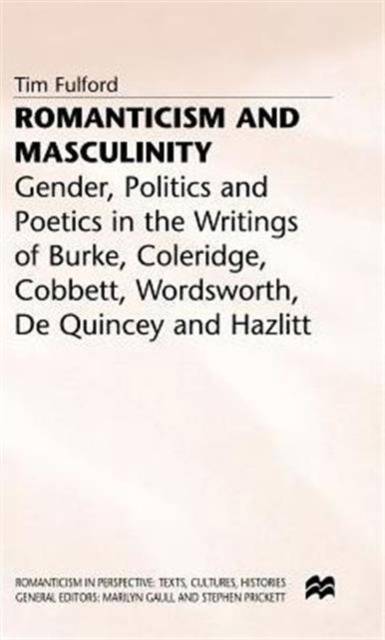
- Afhalen na 1 uur in een winkel met voorraad
- Gratis thuislevering in België vanaf € 30
- Ruim aanbod met 7 miljoen producten
- Afhalen na 1 uur in een winkel met voorraad
- Gratis thuislevering in België vanaf € 30
- Ruim aanbod met 7 miljoen producten
Zoeken
Romanticism and Masculinity
Gender, Politics and Poetics in the Writing of Burke, Coleridge, Cobbett, Wordsworth, de Quincey and Hazlitt
T Fulford
€ 209,95
+ 419 punten
Uitvoering
Omschrijving
This book examines the male Romantics' versions of poetic authority in theory and practice in the context of their involvement in the political debates of Regency Britain and argues that their response to Burke's gendered discourse about power effected radical changes in the definitions of masculinity and femininity. It portrays their influence on each other as a series of unstable struggles and alliances in which the formulation of an authoritative masculinity was a political as well as an aesthetic issue. The author investigates the writers' portrayals of women and their collaborations with women writers and throws new light on their nature poetry by relating it to their reactions to the sexual and political scandals of the Regency.
Specificaties
Betrokkenen
- Auteur(s):
- Uitgeverij:
Inhoud
- Aantal bladzijden:
- 250
- Taal:
- Engels
- Reeks:
Eigenschappen
- Productcode (EAN):
- 9780333683255
- Verschijningsdatum:
- 22/03/1999
- Uitvoering:
- Hardcover
- Formaat:
- Genaaid
- Afmetingen:
- 140 mm x 216 mm
- Gewicht:
- 485 g

Alleen bij Standaard Boekhandel
+ 419 punten op je klantenkaart van Standaard Boekhandel
Beoordelingen
We publiceren alleen reviews die voldoen aan de voorwaarden voor reviews. Bekijk onze voorwaarden voor reviews.











